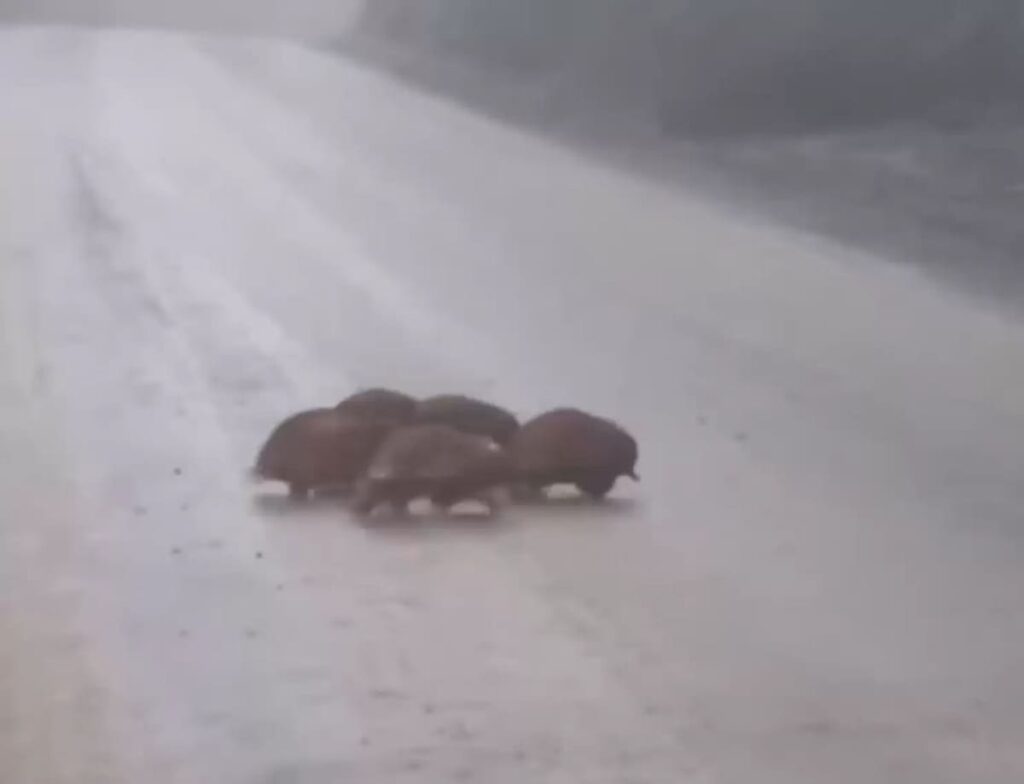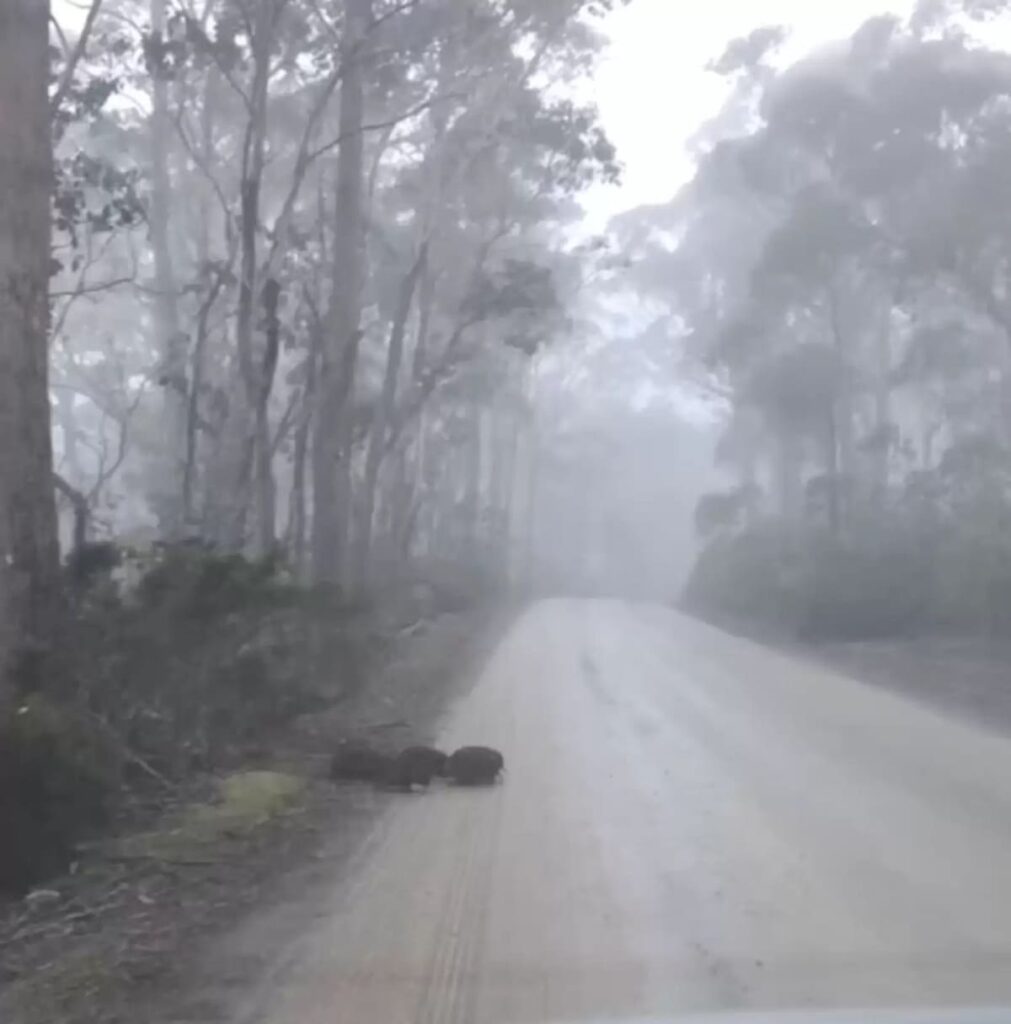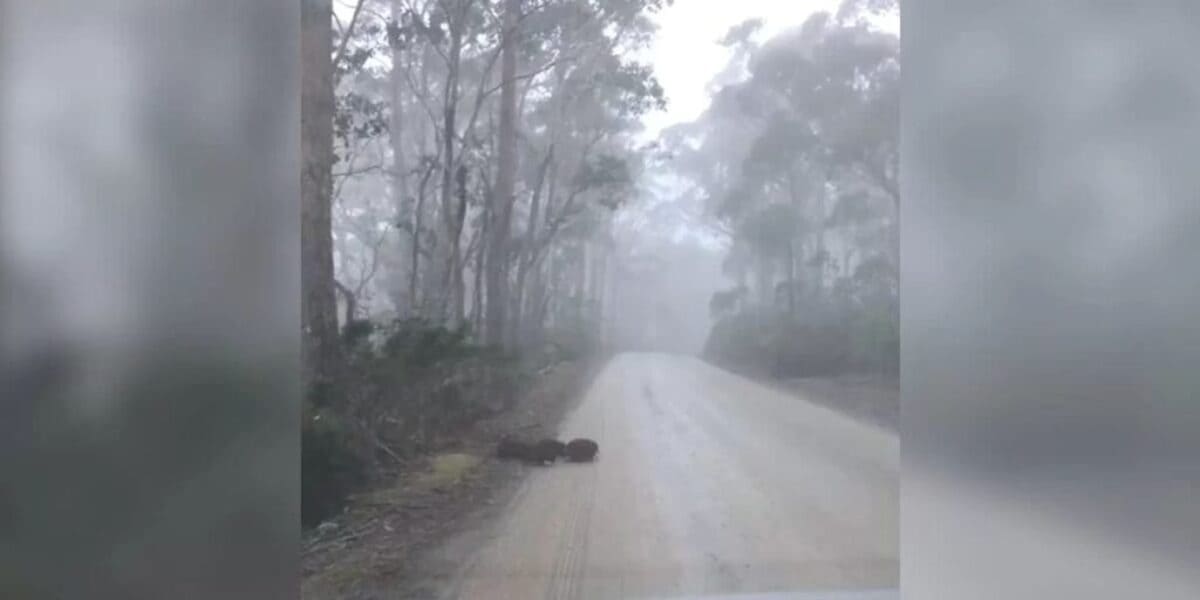It was supposed to be a routine drive through Tasmania’s Ben Lomond National Park — a place where winding roads cut through misty peaks and the occasional wallaby darts across the path. But for Richard Waldron and Shannon Lee, two staff members from the Tasmanian Rover Ski Club, one foggy morning turned into an unforgettable wildlife encounter.
An unexpected encounter
As their car climbed a mountain road shrouded in thick fog, the pair were suddenly forced to brake. Out of the swirling mist emerged five small, spiny creatures — not wallabies, not possums, but echidnas, also known as spiny anteaters.
‘We both just froze for a second,’ Waldron later shared. ‘It felt surreal watching them calmly cross the road right in front of us.’
Echidnas are notoriously shy, solitary animals found in Australia, Tasmania and parts of New Guinea. They usually shuffle about alone, relying on their excellent camouflage and prickly exterior to stay out of sight. But what Waldron and Lee witnessed was no ordinary sighting. The five echidnas appeared to be part of a mating train, a rare natural phenomenon where several males trail a single female in hopes of winning her affection.
A rare sight caught on camera
Fortunately, the pair managed to capture the moment on video before the echidnas disappeared back into the fog. When they later shared the footage online, it quickly went viral, amassing thousands of views and comments from wildlife enthusiasts around the world.
‘We didn’t realise how unusual it was until people started commenting,’ Lee said. ‘Most locals say they’ve only ever seen one or two echidnas at once — never a group of five.’
Experts at the Australian Museum note that such behaviour is typically observed during the cooler months, when echidnas enter their breeding season. Spotting it in the wild, however, remains incredibly rare due to their reclusive habits.

Nature’s living oddities
Echidnas belong to one of the most fascinating — and ancient — branches of the mammalian family tree. Alongside the platypus, they’re part of a group known as monotremes, mammals that lay eggs rather than giving birth to live young. They sport sharp spines for protection, long snouts for sniffing out ants and termites, and surprisingly powerful claws for digging.
Despite their tough appearance, echidnas are gentle and slow-moving, making them particularly vulnerable to traffic. That’s why local conservationists stress the importance of driving carefully in wildlife areas, especially in Tasmania, where fog and winding roads can make spotting animals difficult.
A reminder to share the road
After the video spread online, tourism organisations and conservation groups praised the pair for their quick thinking and gentle approach. Visit Northern Tasmania even reposted the clip, adding: ‘A perfect reminder to take it slow on our roads — we share this space with some truly amazing wildlife.’
The Tasmanian Department of Natural Resources regularly encourages drivers to remain alert for nocturnal or slow-moving animals, especially in national parks where species like echidnas, wombats and wallabies are common. Each year, hundreds of native animals are injured or killed in road incidents — a statistic conservationists hope stories like this can help change.

Nature’s surprises are everywhere
For Waldron and Lee, the encounter served as a magical reminder of how unpredictable nature can be. What started as a foggy mountain drive turned into a once-in-a-lifetime glimpse of one of Australia’s most mysterious creatures.
‘It made us realise how lucky we are to live somewhere like this,’ Waldron said. ‘You never know what’s waiting just beyond the fog.’
Whether you’re exploring Tasmania’s highlands or just walking through your local park, nature has a way of rewarding those who pay attention. Slow down, keep your eyes open, and you might just stumble upon a moment of wonder — one that stays with you long after the mist clears.

